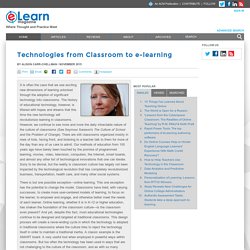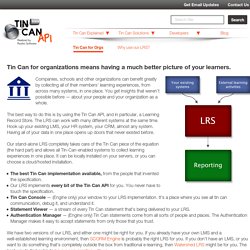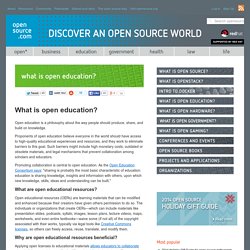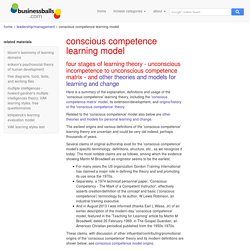

National Cristina Foundation Veterans Resource Guide » National Cristina Foundation. The Teacher Curse No One Wants to Talk About. Knowledge is a curse.

Knowing things isn't bad itself, but it causes unhealthy assumptions -- such as forgetting how hard it was to learn those things in the first place. It's called the Curse of Knowledge. In this post, we'll identify how the Curse of Knowledge affects educators. Then we'll outline seven ways to alleviate the curse. The ultimate goal is to improve instruction. The Curse of Knowledge The Curse of Knowledge has been variously described in articles by Chip and Dan Heath, Carmen Nobel, and Steven Pinker, and also in books such as The Sense of Style and Made to Stick. All of the resources describe the same phenomena -- that a strong base of content knowledge makes us blind to the lengthy process of acquiring it.
We do not remember what it is like to not know what we are trying to teach. As a result, we end up assuming that our lesson's content is easy, clear, and straightforward. Lifting the Curse Here are seven ways to make learning easier for your students. 1. 2. 3. 4. 5. 6.
Interactive Rubrics - MediaSpace. Technologies from Classroom to e-learning. It is often the case that we see exciting new dimensions of learning unlocked through the adoption of significant technology into classrooms.

The history of educational technology, however, is littered with hopes and dreams that this time the new technology will revolutionize learning in classrooms. However, we continue to see more and more the daily intractable nature of the culture of classrooms (See Seymour Sarason's The Culture of School and the Problem of Change). There are still classrooms organized mostly in rows of kids, facing front, and listening to a teacher talk to them for more of the day than any of us care to admit. Our methods of education from 100 years ago have barely been touched by the promise of programmed learning, movies, video, television, computers, the Internet, smart boards, and almost any other list of technological innovations that one can iterate. There is but one possible exception—online learning.
Wearable Technologies Tablets 3-D Printers Bird Dr. Onlinelearningconsortium. Inclusive teaching learning.
Center for 21st Century Universities. AVR. Flipped Classroom. Learn It In 5 - Home. PLN (Professional Learning Network) Tin Can for Orgs. Companies, schools and other organizations can benefit greatly by collecting all of their members’ learning experiences, from across many systems, in one place.

You get insights that weren’t possible before — about your people and your organization as a whole. The best way to do this is by using the Tin Can API, and in particular, a Learning Record Store. The LRS can work with many different systems at the same time. Hook up your existing LMS, your HR system, your CRM, almost any system. Having all of your data in one place opens up doors that never existed before. Our stand-alone LRS completely takes care of the Tin Can piece of the equation (the hard part) and allows all Tin-Can-enabled systems to collect learning experiences in one place.
The best Tin Can implementation available, from the people that invented the specification.Our LRS implements every bit of the Tin Can API for you. What is an LRS? - Watershed LRS. Educational Technology. Online education. TechnologyCHETL. Home Page - OLC. What is open education? Open education is a philosophy about the way people should produce, share, and build on knowledge.

Proponents of open education believe everyone in the world should have access to high-quality educational experiences and resources, and they work to eliminate barriers to this goal. Such barriers might include high monetary costs, outdated or obsolete materials, and legal mechanisms that prevent collaboration among scholars and educators. Promoting collaboration is central to open education. As the Open Education Consortium says: "sharing is probably the most basic characteristic of education: education is sharing knowledge, insights and information with others, upon which new knowledge, skills, ideas and understanding can be built.
" What are open educational resources? Open educational resources (OERs) are learning materials that can be modified and enhanced because their creators have given others permission to do so. Why are open educational resources beneficial?
PLE. Digital Literacy. Introduction to Computer Science and Programming Using Python. VLEs / CMS. General ed tech and digital literacy. For E teaching. Conscious competence learning model matrix- unconscious incompetence to unconscious competence. Conscious competence theory - summary outline The conscious competence theory and related matrix model explain the process and stages of learning a new skill (or behaviour, ability, technique, etc.)

The concept is most commonly known as the 'conscious competence learning model', or 'conscious competence learning theory'; sometimes 'conscious competence ladder' or 'conscious competence matrix'. Other descriptions are used, including terminology relating to 'conscious skilled' and 'conscious unskilled' (which incidentally are preferred by Gordon Training).
Occasionally in more recent adapted versions a fifth stage or level is added to the conscious competance theory, although there is no single definitive five-stage model, despite there being plenty of very useful and valid debate about what the fifth stage might be.
Web 2.0 Tools.